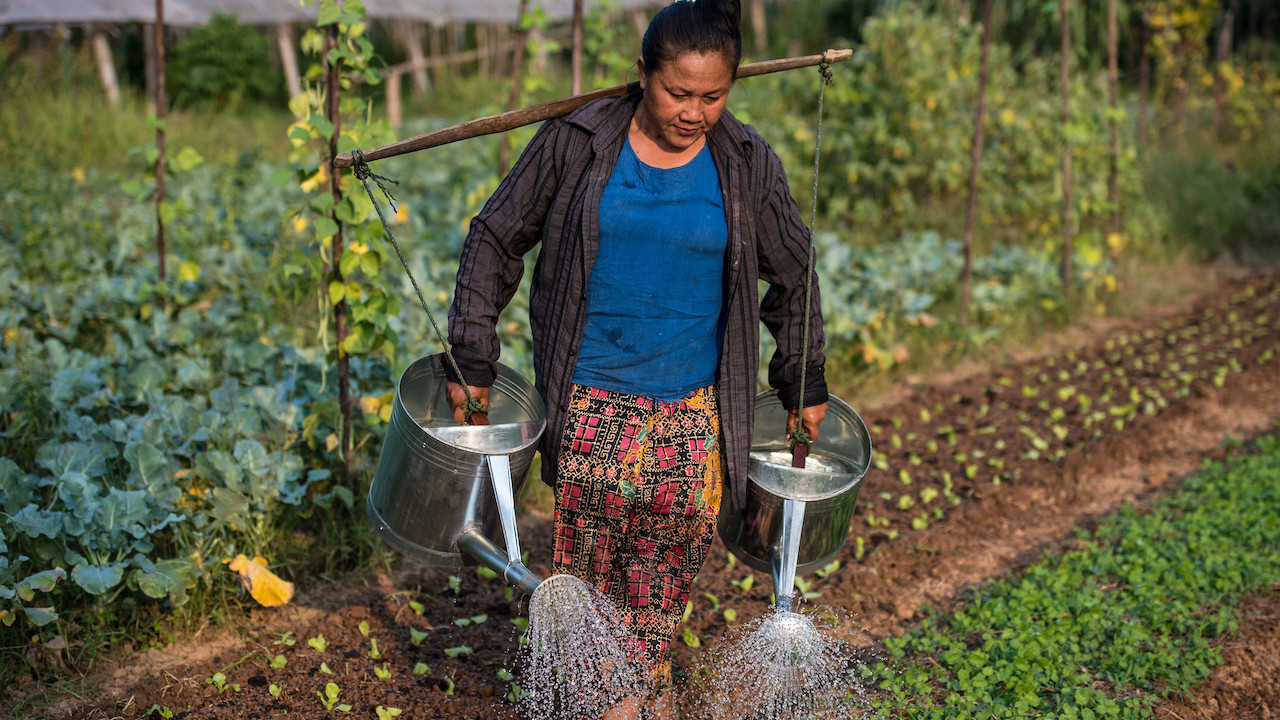Climate-Smart Agriculture: Adoption, Impacts, and Implications for Sustainable Development

Event Type:
Date:
Time:
Organizer:
The conference will examine the benefits of climate-smart agriculture and help countries develop policies that encourage the shift toward such systems.
Climate change reduces agricultural productivity and leads to greater instability in crop production, disrupting the global food supply and resulting in food and nutritional insecurity. A transformation of the agricultural sector toward climate-resilient practices is urgently needed to successfully tackle food security and climate change challenges.
Climate-smart agriculture is an approach that guides farmers’ actions to transform agri-food systems toward building the agricultural sector’s resilience to climate change based on three pillars: increasing farm productivity and incomes, enhancing the resilience of livelihoods and ecosystems, and reducing and removing greenhouse gas emissions from the atmosphere. Promoting the adoption of climate-smart agricultural practices is crucial to improve smallholder farmers’ capacity to adapt to climate change and mitigate its impact, as well as help achieve the United Nations Sustainable Development Goals. Although smallholder farmers worldwide have adopted numerous practices and technologies (e.g., integrated crop systems; improved pest, water, and nutrient management; improved grassland management, reduced tillage and use of diverse varieties and breeds; restoring degraded lands; and improved input use efficiency) to reach the objectives of climate-smart agriculture, the increased uncertainty that climate change imposes calls for more flexible and rapid response capacity in smallholder farming systems.
The conference will present and discuss original, unpublished papers that enrich understanding of the associations between climate-smart agriculture and sustainable agricultural development. It will also provide insights for policymakers to design appropriate policy instruments to develop agricultural practices and technologies and promote them to sustainably enhance the farm sector’s resilience to climate change and increase productivity. Agenda
Featured speakers
- Dil B. Rahut, Vice-Chair of Research and Senior Research Fellow, Asian Development Bank Institute
- Tetsushi Sonobe, Dean, Asian Development Bank Institute, Japan
- Edward Barbier, University Distinguished Professor, Department of Economics, Colorado State University
- Tatsuyoshi Saijo, Specially Appointed Professor, Institute for International Academic Research, Kyoto University of Advanced Science
- Sukanya Das, Associate Professor and Head, Department of Policy and Management Studies, TERI school of Advanced Studies
- Alan William Renwick, Professor of Agricultural Economics, Lincoln University, New Zealand
- Jianjun Tang, Professor, School of Agricultural Economics and Rural Development, Renmin Unversity of China
- Anita Wreford, Professor, Lincoln University, New Zealand

